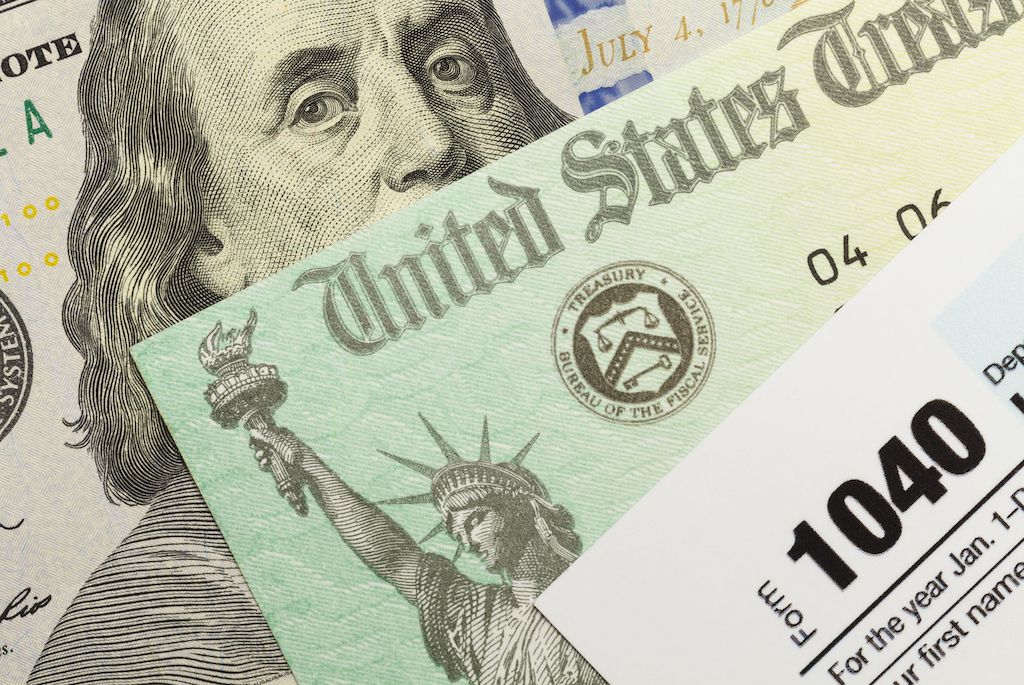Didn’t Get a Stimulus Check? You Might Still Qualify
The American Rescue Plan Act of 2021 (ARP), which was signed into law on March 11th, sought to deliver immediate relief to working families bearing the brunt of the coronavirus crisis by allocating roughly $400 billion in fiscal stimulus packages. If you are eligible, you may have already received your payment via direct deposit or check, though that’s not to say you should lose hope if you haven’t. Morris Financial Concepts has compiled a list of what you need to know about qualifying for the latest Recovery Rebate stimulus package under the ARP.
What to Know About the 2020 Recovery Rebate Stimulus
How Does The ARP Stimulus Differ from Previous Packages?
Unlike the previous stimulus packages, the Coronavirus Aid, Relief, and Economic Security (CARES) Act of 2020, and the Consolidated Appropriations Act of 2021, the ARP made dependents (defined as children over age 17 and others who are financially dependent on the taxpayer) eligible for an award, as long as they are claimed on the 2021 tax return.
This stimulus payment of $1,400 per person is also higher than the previous rebates of $1,200 and $600, respectively. Another important difference to note with The American Rescue Plan (ARP) is the narrower eligibility structure. This means that you cannot make as much money as you could with the prior two and still qualify for this new rebate.
What Are the Eligibility Requirements for the 2021 Stimulus Check?
Each stimulus payment amount is based on the adjusted gross income (AGI) listed in your 2019 or 2020 tax return, depending on whichever was the most recent on file. Married couples or taxpayers filing jointly are eligible to receive the full stimulus payment if their AGI was under $150,000. There is a phased-out payment between $150,000 and $160,000. For every $1,000 above the lower threshold, the payment was reduced, or phased out, by about 10%.
Single filers qualify for the full stimulus payment if their AGI was below $75,000, or a phased-out payment if between $75,000 and $80,000. Similarly, Head of Household (HoH) filers are eligible for the entire stimulus payment if their AGI was under $112,500, or a phased-out payment between up to $120,000. This stimulus award is unlimited, regardless of how many dependents you have, and is not taxable.
Why Didn’t I Receive a Stimulus Check But Qualify for One?
If you are eligible based on the above AGI figures, have already filed your 2020 taxes, and still haven’t received your stimulus payment, don’t worry! It may simply still be processing. Although the IRS and Treasury are continuing to send stimulus checks (with millions more going out this week), the agencies have until the end of 2021 (December 31st) to complete distributing the third payments.
For the latest information on the IRS stimulus schedule, click here.
When Should I File My 2020 Tax Return?
If your income has been reduced since your most recent filing, you may qualify for an additional benefit when you file next. Perhaps your 2019 income was above the higher end of the phase-out range, but your 2020 income now qualifies you for a stimulus payment for more than what you originally received. The ARP introduced the Additional Payment Determination Date (APDD) for this reason. The APDD is 90 days after the tax filing deadline for 2020 returns (now extended to May 17th), which is August 15th.
If you choose to file your 2020 tax return prior to the ADPP, you will have your Recovery Rebate amounts recalculated based on your latest reported AGI. That means you will get an additional stimulus check after filing to make up for any difference. Although you have up until October 15th to file your 2020 tax return, if you file after the August 15 ADPP, you forfeit the ability to use your 2020 tax return to qualify for the additional stimulus.
So, if your 2020 AGI is lower than in 2019 and is within the specified income range for eligibility, you should file your tax return as soon as possible. On the other hand, if your 2019 adjusted gross income was lower, it is better to delay filing until after your stimulus check (or, at least closer to the May deadline).
Do I Qualify For the 2021 Recovery Rebate?
Now for the good news. If you didn’t qualify based on your 2019 or 2020 tax return, you still have one more chance to qualify for an ARP stimulus payment based on your 2021 income. The bad news is that you will be waiting for over a year before you file that tax return to receive any money. Here are three checkpoints provided by the IRS that can help you determine whether or not you can qualify:
Checkpoint 1
If you have already filed your tax return for 2019 and 2020, and your AGI (whichever is the latest on file) was below the lower phase-out threshold, you will receive the full stimulus package. Therefore, you are not eligible for any additional rebate when filing your 2021 tax return.
Checkpoint 2
If your 2019 tax return is your latest on file and you already received a pro-rata amount of the stimulus rebate based on your AGI, you may be eligible for an additional rebate. If your 2020 AGI is lower than that in 2019, file your 2020 return before the ADPP to qualify.
Checkpoint 3
If you weren’t eligible for a stimulus rebate based on your 2019 or 2020 AGI or you didn’t file before the ADPP, you could still be eligible for a rebate on your 2021 return if your income is lower. The rebate amount will be sent in the form of a tax credit for the difference between your newly filed income and the specific income range parameters.
If you aren’t sure whether or not you should receive a rebate in 2021, reach out to your fee-only financial planner and let them know whether or not you received last year’s stimulus payment.
How Can I Lower My 2021 Adjusted Gross Income?
If you have determined that you are eligible for a rebate when filing your 2021 taxes and you project that your 2021 AGI will fall just within or slightly above the upper end of the specified income range, you may want to consider implementing a few strategies for reducing your AGI.
Keep in mind, that even just a $1 over the upper parameter disqualifies you from receiving additional benefits. As you begin 2021 tax planning, here are a few ways you can reduce your AGI to help ensure your eligibility for this rebate:
- Contribute to a health savings account.
- Make a deductible IRA contribution.
- Wait to convert traditional retirement account balances to Roth accounts.
Contact Your Fee-Only Financial Advisors in Charleston, SC
When it comes to tax planning, a day late is a dollar short. A wrong decimal can cost you thousands. Trust us, a little bit of strategic tax planning for your 2020 and 2021 filings can go a long way.
For more information on what is best for your situation, reach out to our fee-only financial planners in Charleston, SC. As an independent, fee-only financial planning firm, Morris Financial Concepts is dedicated to providing personal, steadfast advocacy and financial strategies to our global clientele base. Take a step toward achieving your financial goals with us today!
The opinions expressed herein are those of Morris Financial Concepts, Inc. (“MFC”) and are subject to change without notice. This material is for informational purposes only and should not be considered investment advice. MFC relies on information from various sources believed to be reliable, including third parties, but cannot guarantee the accuracy and completeness of any third-party information. MFC is an independent investment adviser registered under the Investment Advisers Act of 1940, as amended. Registration does not imply a certain level of skill or training. More information about MFC including our investment strategies, fees, and objectives can be found in our ADV Part 2, which is available upon request. MFC-21-09.


